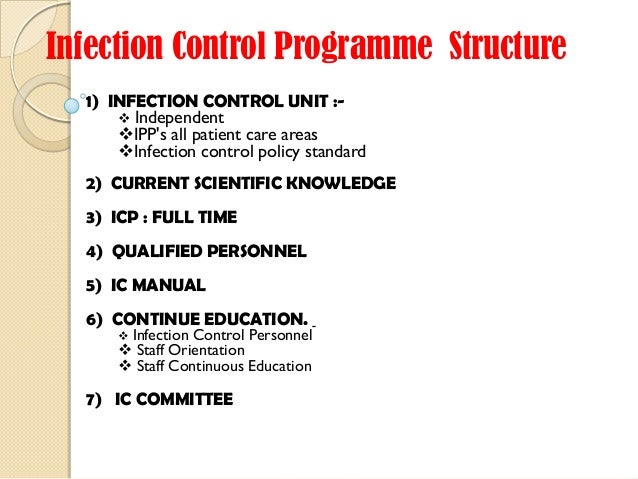
Image source: https://image.slidesharecdn.com/theimportanceofinfectioncontrolinpatientcare-130122002134-phpapp02/95/the-importance-of-infection-control-in-patient-care-6-638.jpg?cb=1358814411
Even in hospitals you could see different instances where infection control is ignored and thus lead to more people turning victims to different kinds of diseases. Ironically, infection can easily be controlled today with different products that are being developed thanks to the introduction and growth of technology in medical science. The guidelines emphasize on the importance of cleanliness, hand washing, disinfecting, sterilization and other related factors which can help keep the workplace and oneself clean and free from infections. The top 6 reasons why infection control is so important have been discussed below.
Infection control is very important, especially in hospitals and clinics. A host of infections are present here and they should not be allowed to spread. The training program educates the staff members and the health care workers about the various infections, their symptoms and the remedial measures that can be taken. Knowledge is important as it helps in early detection which can help in controlling infection before it spreads.
Infections can spread and propagate in many different ways. Awareness should be spread amongst the workers about infections, its types, its mode of transmission and steps to prevent it. Understanding the significance of hygiene can help to prevent it.Sterilization is very important in hospitals for there are sick people trying to recover, newborns that are too young to be strong and patients with very low resistance.
A sterile and clean environment has to be maintained where infection causing microorganisms have no room to survive. Personal hygiene, disinfecting, cleaning, and sterilization must be maintained and the staff should be taught about its importance and how to achieve it. The importance of hand washing has to be explained. The patients and visitors must also be encouraged to follow the steps prescribed for effective hand washing.
Protective gear is a must for it acts as the primary barrier between the infection and the human body. Gloves, aprons, gowns and other protective gear have to be worn as required. After each use, they have to be disposed off safely. What cannot be disposed off has to be disinfected properly for next use.In spite of all care being taken and all the protocols in place, there may sometimes be some unfortunate situations when health care personnel may be exposed to infections.
A good knowledge of infection control helps the infected person and the staff deal with the outbreak.Needles and related materials have to be disposed off effectively as per the protocol. The janitors and the cleaning persons must know all about infection control and have to be trained in it to know about disposing of hazardous medical waste.
Infection control guidelines help create a safe and clean environment in the hospitals and clinics. A clean, hygienic environment is a perfect healing place, free from infections and a perfect place of work too. One must try and follow the guidelines wherever possible to remain free from infections.
/about/58051528_thumbnail-57f6843f5f9b586c350e974d.jpg)